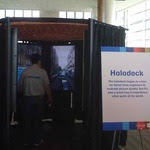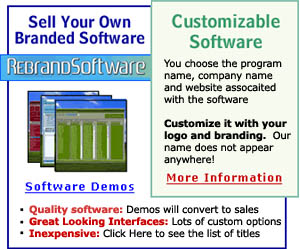Search This Blog
Monday, September 26, 2011
Face Book Privacy issue crop up again:
Friday, December 11, 2009
Saturday, December 5, 2009
Panda Cloud Antivirus Free Software
Thursday, November 26, 2009
Wanna try safari v4.
Apple has launched a version of its web browser Safari for Windows, competing head to head with Microsoft's Explorer and Mozilla's Firefox.
According to Apple's website:
DOWNLOAD APPLE SAFARI 4 BROWSER FOR WINDOWS XP / VISTA
Monday, November 23, 2009
Twitter, what I’m going to do with it.
 I join twitter to follow the US Presidential election. Since taking over America from the Red Indians, USA has been the pace setter. US did what the Red Indian would consider it, as against mother nature. Basically they screwed up the world, and the rest follow. That’s the reason why we have to keep in touch with developments there.
I join twitter to follow the US Presidential election. Since taking over America from the Red Indians, USA has been the pace setter. US did what the Red Indian would consider it, as against mother nature. Basically they screwed up the world, and the rest follow. That’s the reason why we have to keep in touch with developments there.Tuesday, November 10, 2009
Nov. 10, 1983: Computer ‘Virus’ Is Born.
Wednesday, November 4, 2009
The Best youtube downloader
Tuesday, October 27, 2009
Build Your Own PC.
- STEP 1 : Materials Required
- STEP 2 : Remove Case Cover
- STEP 3 : Case Preparation
- STEP 4 : Install Power Supply
- STEP 5 : Install the CPU
- STEP 6 : Install Heat Sink/Fan
- STEP 7 : Install Memory
- STEP 8 : Configure the Motherboard
- STEP 9 : Install the Motherboard
- STEP 10 : Connect Motherboard To Case
- STEP 11: Install Floppy Drive
- STEP 12 : Configure the Hard Drive & CD-ROM
- STEP 13 : Install Drive
- STEP 14 : Install the CD-ROM(s)
- STEP 15 : Install The Video Card
- STEP 16 : Post-Assembly
- STEP 17 : Initial Boot-Up
- STEP 18 : Configure The BIOS
- STEP 19 : Test The System
- STEP 20 : Prepare the Hard Drive(s)
- STEP 21 : Install The CD-ROM Driver
- STEP 22 : Install The Operating System
- STEP 23 : Tidy Up

Friday, September 4, 2009
Signs of Malware
1.) Your computer slows down majorly. If your system slows down drastically, you may have an infection. Viruses and adware use resources on your computer. They can destroy files, send spam e-mail, redirect your browser and many other things that will slow your computer down.
2.) Internet browser crash. If your Internet browser stops working or shuts down often, you may be infected. Since most malware programs use the Internet to spread themselves, they will affect the performance of your browser. If your Internet browser just starts closing with no warning, you need to check for viruses.
3.) Random e-mails. Many viruses spread through e-mail. If you use an e-mail client, such as Outlook Express, MS Outlook or Thunderbird, a virus could infect it and start sending spam e-mail out to all your contacts. If you start to receive strange e-mails like "Message Undeliverable" or "Mailer Deamon," a virus may be sending e-mail with your address.
4.) Error messages at startup. If you start receiving error messages when you turn your computer on, you may have some type of malware infection. Malware programs usually turn on at startup and they sometimes cause errors, so you need to keep an eye out for that.
5.) Things look "strange." I know that seems a little vague, but sometimes you open something and it just looks funny. If you didn't install something or make a change to your system, there's no reason why something would change. Computers don't make decisions on their own. If something has changed and you didn't initiate it, you should scan for viruses and malware.
Those are the five most common signs of an infection. Many of them may indicate a virus, but that doesn't necessarily mean you're infected.
Some of the signs could indicate a hardware issue or a program conflict. As a general rule, if you know of a recent change that caused the actions, it's probably not a virus. If the signs happen for no reason at all, you should be concerned and get your computer checked. Until next time, stay safe out there, my friends!
~ Gary
Tuesday, June 30, 2009
IP version 6
Monday, June 29, 2009
Google Holodeck: StreetView In 360 Degrees.
 May 27, 2009 - Google StreetView images are pretty cool, in how you can virtually spin around and see what’s on a street in all directions. But far cooler is a Google StreetView “Holodeck” simulator that Google has at its Mountain View campus. Climb into this, and you get StreetView scenes animated, projected on screens all around you, as if you were inside the camera itself.
May 27, 2009 - Google StreetView images are pretty cool, in how you can virtually spin around and see what’s on a street in all directions. But far cooler is a Google StreetView “Holodeck” simulator that Google has at its Mountain View campus. Climb into this, and you get StreetView scenes animated, projected on screens all around you, as if you were inside the camera itself.I first saw Holodeck back in October, and it’s been kept pretty quiet within the company since. But now Google has brought it out as part of its Google I/O conference today.
Think of it as CircleVision For Streetview, CircleVision being the popular Disneyland and Disneyworld rides where cameras were used to film in 360 degrees. Images were then projected on the walls all around the audience and could produce such a sense of montion that people used handrails to keep themselves stable at times.[more]
Saturday, June 20, 2009
For Firefox & Internet Explorer 8 users!
That's too much work.
Next time you're in this situation and you want to re-open the tab you just closed try the combination:
Ctrl+Shift+T
This will re-open the last tab you closed, saving you an extra couple of minutes of frustration!
~Andrew
Tuesday, April 7, 2009
What does "IP" stand for?
In computer lingo, IP stands for "Internet Protocol". You'll often see it paired with TCP, "Transmission Control Protocol." Together, TCP/IP allow two different computers to talk back and forth over the internet.
Every computer and server (email servers, IP hosts) has an IP address.The IP address acts like a return postal address stamped on packets of data that your computer sends through the internet.
IP addresses are made of four numbers separated by periods, for example, 69.44.18.176. This stamp on data sent through the net tells receiving computers what country, service provider, host, and computer sent the info.
Some routers and software can make you anonymous over the internet by masking your IP address. In addition, less scrupulous computer masters can take control of a remote computer and thus have that computer's IP (return address) stamped on their evildoings.
~ Chris (worldstart.com)
Tuesday, March 31, 2009
Did you know? Technology.
Hope you enjoy!
Monday, March 30, 2009
Internet users: Beware of new malicious spam
 A new, large scale malicious spam, posing as an email from courier firm DHL is on the loose, warned IT security and control firm Sophos today.
A new, large scale malicious spam, posing as an email from courier firm DHL is on the loose, warned IT security and control firm Sophos today.It said in a statement here that internet users would receive messages that the courier company had tried to deliver a parcel to them on March 14.
"The messages also stated that they needed to print out the attached invoice which contained a zip file and bring it to the DHL office," it explained.
The emails all used the subject line, 'DHL Tracking number' but had a randomly generated reference number it said, adding that the scam was the second in the space of a week masquerading as DHL.
Wednesday, March 25, 2009
Quick Tip - do you know the MENU key?
I made a new friend today. It was there all along and I never noticed it on the right side of my keyboard between the Window Key and the Control Key. I don't even know it's true name, so I'll call it the "Menu Key". Why? Because when you press it, it opens up a drop-down menu for whatever program you're in. The menu includes all the information you would see if you right clicked, so I guess you could also call it the "Right-Click" Key.

So, next time you're typing away and need an edit menu or some other feature that you normally right-click to get, just head down to the Menu Key. Pretty soon it'll be your friend too.
~ David (worldstart.com)
Friday, March 20, 2009
Today's Feature : Safari 4
 How many of you out there use Safari as your main Web browser? Well, if you do, you might be interested to know that Apple has released Safari 4 Beta! If you don't use it now, this would be a great time to check it out. The new version packs a big punch with only a couple drawbacks. Let's check it out!
How many of you out there use Safari as your main Web browser? Well, if you do, you might be interested to know that Apple has released Safari 4 Beta! If you don't use it now, this would be a great time to check it out. The new version packs a big punch with only a couple drawbacks. Let's check it out!First, the new version of Safari is fast! I installed it and it loads pages faster than any other browser I've ever used. Secondly, version 4 is well laid out. The tabs have moved to the top of the screen, which is a great idea. Also, the menu bar is greatly reduced so that you have more screen available to see your favorite Web pages.
Now, there are a couple other great features, but they come with a warning. The two coolest features of Safari 4 are Cover Flow and Top Sites. Those features allow you to look at your Web sites in a whole new way! Top Sites provides you with a live view of several sites at once. You can even choose to move them to a full screen version. Cover Flow works just like Apple's iTunes to allow you to scan through sites one by one. The problem with those features is they don't work on older computers. You need to have a newer and more powerful video card to be able to use them. If your computer doesn't meet the requirements, the buttons you need to use the features will not appear.
So, if you have a new computer that meets the requirements for Safari 4, you should check it out in all its glory! If you don't, it's still a very fast Web browser, just without all the fancy thrills.
The system requirements for Safari 4 Beta can be found here. You can also download Safari 4 Beta for yourself right here. Enjoy!
~ Gary
Thursday, March 19, 2009
Worms and Viruses
VIRUS
A virus is an unwanted program that, in almost all cases, the user accidentally installs onto his or her computer. Some are relatively harmless and cause little, if any, damage. Some are much more hazardous and can render the information on your computer's hard drive useless.
So why do people make viruses?
Worms and Viruses
I got a question the other day from a reader wanting to know what the difference between a worm and a virus. So, without further adieu, here we go!
Viruses are self-replicating programs that embed themselves into other programs, or even the operating system , and use the host to carry out its function. Unless it attaches itself to an email, a virus stays put on the victim's computer.
A worm is also a computer program that makes copies of itself. They spread from computer to computer (instead of file to file), infecting whole systems, using up resources in the affected computer, and causing heaps of damage. Worms penetrate the computer's memory from a network, find network addresses of other computers, then send their own copies to these addresses. Once launched, a worm can email itself to everyone in an address book or launch a trojan horse.
So, worms are designed to spread out to many computers while viruses generally stay put. Worms take over your computer while viruses destroy files.
Regardless of the differences, though, they are both destructive to your system.
Sunday, March 8, 2009
Microsoft to give users IE removal option
 Internet Explorer can be removed from the new version of Windows 7 |
In January, European regulators accused Microsoft of "abusing its dominant market position by bundling its Internet Explorer Web browser with its Windows operating system," Reuters reported.
While the software would be available in the market next year, the primary version is widely used by many around the world.
"Windows 7 is becoming more and more important for Microsoft," said Michael Cherry, an analyst for the research group Directions on Microsoft, "You don't want anything that gives anyone even a doubt as to whether or not they should upgrade".
Thursday, February 26, 2009
Instacalc Online Calculator
I found this online calculator Web site to be very interesting. To get started, I recommend scrolling down to the Ready to Use section and taking the tour. It will walk you through the features for the calculator.
What I love about it is you don’t have to press Enter to get an answer. Also, you can use multiple lines to do more than one step in a problem!
To switch between styles of math you want to compute, use the drop down box on the calculator. Perhaps you need to do trigonometry or find a volume. If so, just switch it from Basic Math to whatever you need.
You’ll find examples on the calculator as well. They're demonstrating how to put in the information so that you get the right answer. I would have been lost without the square root example!
You can also find other kinds of calculators here: BMI, Unit Conversion, Home Loan, Video Game Prices, Web site Bandwidth and Web site Earnings, just to name a few. To use those calculators, just click on the links under the Ready to Use section.
You can also share the calculators either via a link or you can embed them into your Web page. For more instructions on that, check out the Hassle Free Sharing section underneath the calculator.
I’ve been using this calculator when I can’t find my own to do my math homework. I love it and I think you will too!
courtesy ~ Amanda
Monday, January 12, 2009
What's new in Windows 7: Faster & easier
Here's a first look at what's coming in Windows 7. It's early, so be sure to watch for more details as we get closer to launch. Thanks again for taking the time to help make this a great product.
Improved taskbar and full-screen previews
The taskbar at the bottom of your screen is what you use to switch between the applications you've got open. In Windows 7 you can set the order in which the icons appear and they'll stay put. They're easier to see, too. Click once on the new large icons or bigger preview thumbnails and you're ready to go. You can even see a full screen preview before switching to the window.

[download window 7 ]
Sunday, December 21, 2008
Computers 101 - SERVERS
Excellent question! Basically, a server is a service that allows clients (that's you) to be able to use programs within your computer. Servers are run through specialized computers, which are, ironically, also called servers. In other words, a server serves the information needed to a computer that it's connected with so that you can access your programs, files, etc.

















.gif)






